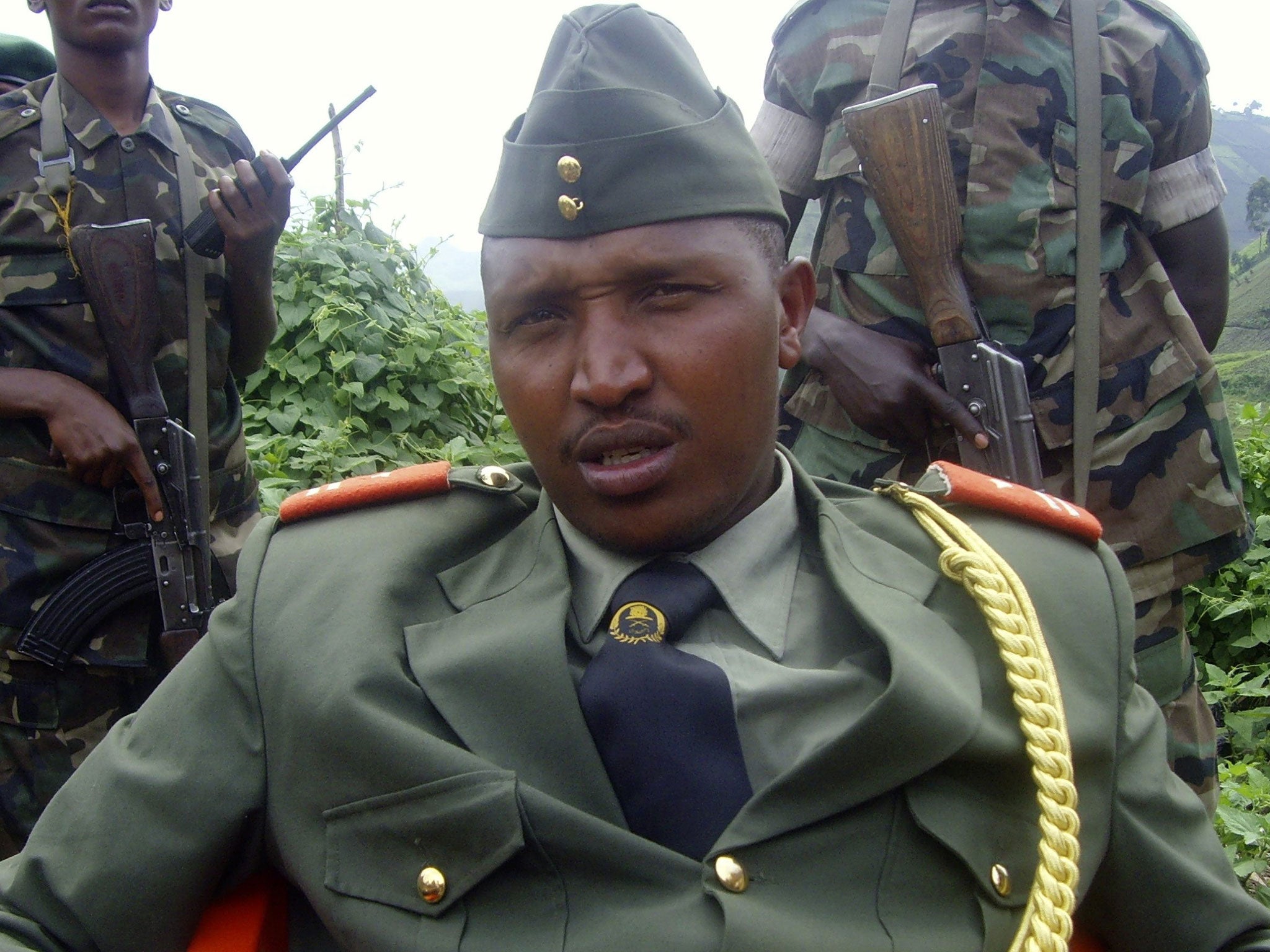Congolese war criminal Bosco 'The Terminator' Ntaganda unexpectedly turns himself in at US embassy in Rwanda

Your support helps us to tell the story
From reproductive rights to climate change to Big Tech, The Independent is on the ground when the story is developing. Whether it's investigating the financials of Elon Musk's pro-Trump PAC or producing our latest documentary, 'The A Word', which shines a light on the American women fighting for reproductive rights, we know how important it is to parse out the facts from the messaging.
At such a critical moment in US history, we need reporters on the ground. Your donation allows us to keep sending journalists to speak to both sides of the story.
The Independent is trusted by Americans across the entire political spectrum. And unlike many other quality news outlets, we choose not to lock Americans out of our reporting and analysis with paywalls. We believe quality journalism should be available to everyone, paid for by those who can afford it.
Your support makes all the difference.One of Africa's most wanted war criminals walked into the United States embassy in Rwanda today and asked to be transferred to the International Criminal Court at The Hague. The US said it was “considering his request” after Bosco Ntaganda, nicknamed the “Terminator” appeared on their doorstep in Rwanda's capital, Kigali.
Mr Ntaganda appears to have fled his base in Eastern Congo and sought refuge at the US embassy after a recent split in the armed rebellion of which he has been a commander. One faction of the M23 rebels, who are in peace talks with the government of the Democratic Republic of Congo (DRC), is believed to be close to a peace deal and has been openly battling with fighters loyal to the indicted war crimes suspect. Mr Ntaganda's followers fled across the border into Rwanda in recent days as a rival faction took control of M23.
News of his “surrender” as Rwanda's Foreign Minister, Louise Mushikiwabo termed it on her Twitter account, surprised diplomats in Kigali.
“He's a man with few options,” said one Western diplomat. “He may have seen this as his safest course of action.”
The US will now have to decide whether to transfer the former general in the Congolese army to The Hague, or whether to hand him over to the authorities in the DRC. US State Department spokeswoman Victoria Nuland tonight confirmed that he had walked into their embassy of his own free will: "He specifically asked to be transferred to the ICC in the Hague,” she told reporters. “We are currently consulting with a number of governments, including the Rwandan government, in order to facilitate his request."
It is not known how long he had been in Rwanda but a witness in Kigali claimed they saw him pull up at the embassy in a taxi.
Born in Rwanda but having grown up in neighbouring Congo, Mr Ntaganda faces a litany of charges at The Hague, including recruiting child soldiers, sex slavery, murder and pillaging. The ICC issued arrest warrants against him in 2006 over crimes related to crimes committed in Eastern Congo in 2002-2003. He has since been named in a number of UN reports detailing the recruitment of child soldiers and attacks on the civilian population while serving in both the Congolese army and at least two armed rebellions.
Mr Ntaganda has been at the heart of a regional battle for control of resource-rich Eastern Congo in which ethnic Tutsi military commanders – with the backing of Rwanda and Uganda – have vied for control with the weak and corrupt Congolese army, the FARDC. Previous peace deals, such as the one in 2008 which ended a Tutsi-led movement calling itself the CNDP, have tended to fold rebel leaders back into the FARDC. The former warlord and CNDP Laurent Nkunda has been living in Rwanda since that deal under a loose form of house arrest.
The M23 movement which announced itself last year was led by former CNDP commanders who claimed that the peace deal had not been honoured.
With support from the Rwandan army – detailed in a UN report last year to the Security Council – the M23 quickly overwhelmed the Congolese army and UN peacekeepers and briefly occupied the regional aid and trading hub of Goma. The rebels have since withdrawn and endured a bitter split with one faction led by Mr Ntaganda and the other by his long-time rival Sultan Makengi. Mr Makengi is believed to be amenable to a peace deal with Congolese President Joseph Kabila, with talks being held in neighbouring Uganda.
Rwanda has hotly denied UN accusations that it had “command and control” of the M23 but the evidence was strong enough to persuade several Western governments including Britain to withhold development aid, which amounts to 40 percent of the country's national budget.
That aid has recently resumed as Rwanda's President Paul Kagame has cooperated in the regional peace process.
Join our commenting forum
Join thought-provoking conversations, follow other Independent readers and see their replies
Comments